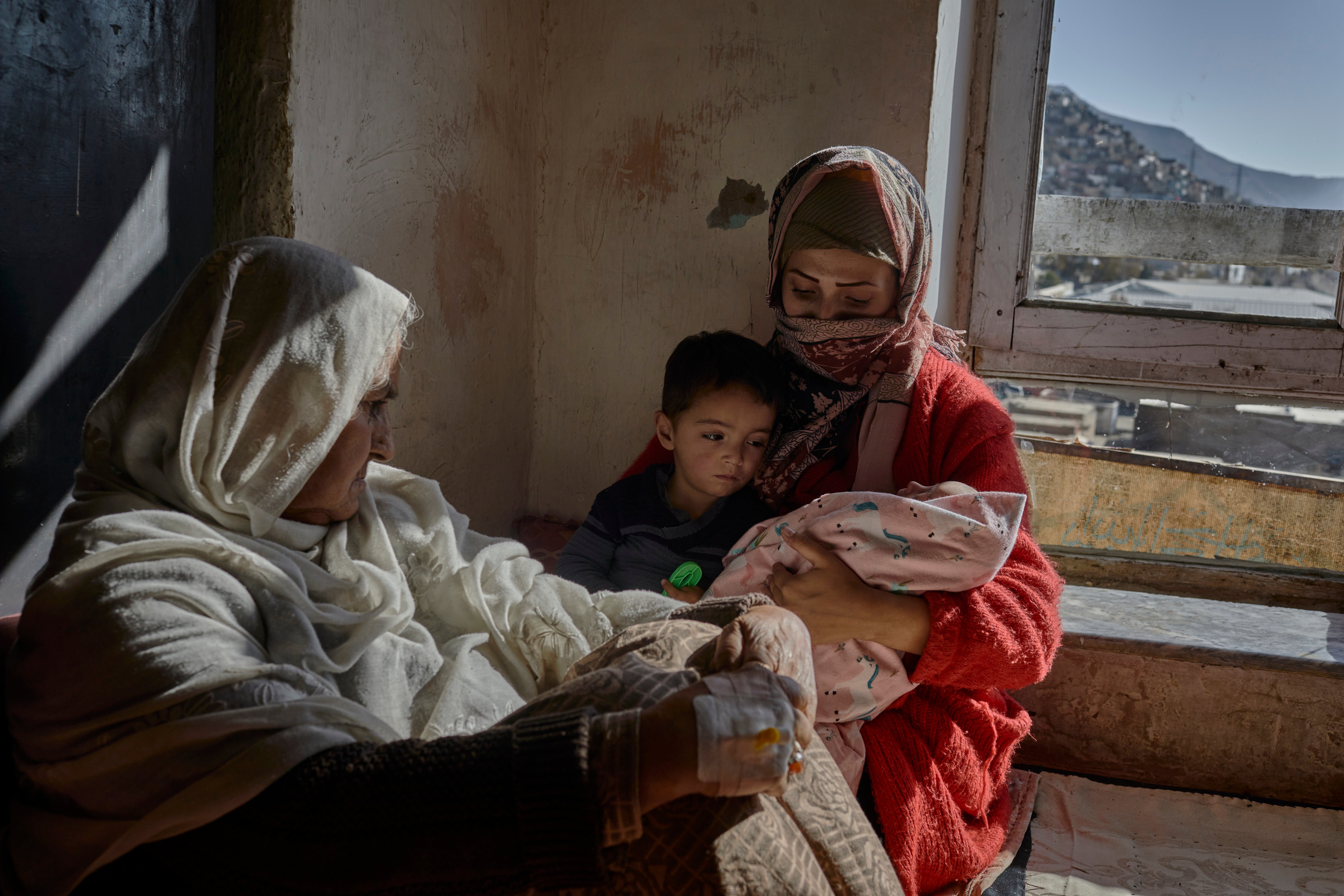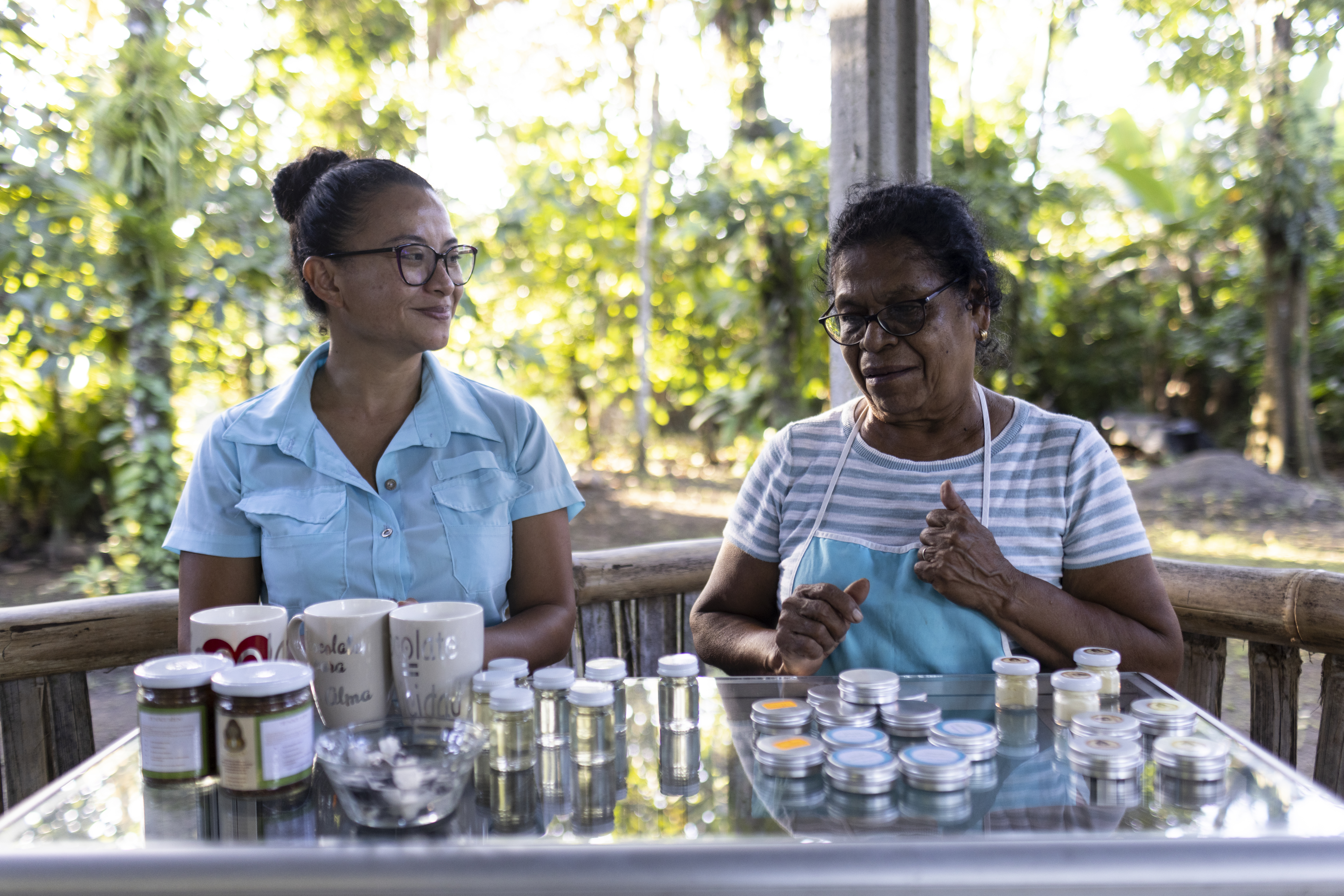UNHCR puts spotlight on violence against displaced women in Colombia
UNHCR puts spotlight on violence against displaced women in Colombia

BOGOTA, Colombia, December 4 (UNHCR) - As the UN refugee agency once again takes part in an annual campaign aimed at eliminating violence against women, statistics for Colombia paint a grim picture.
An average of a woman a day dies because of the armed conflict in Colombia - some 1,600 women in the past four years either killed as a result of combat or summarily executed by one of the country's various armed groups, according to the Colombian Commission of Jurists.
Adelaida Ortiz and Marleni Pai are a chilling example. The two women and hundreds of other members of their Awá indigenous community had fled fighting between government troops and an irregular armed group earlier this year and sought shelter in the village of Altaquer in southern Colombia's volatile Nariño department.
On August 9, the two women and three male members of their community - including Ortiz's husband - were dragged out of a house and shot dead. The killers, who went from door to door looking for their victims, have not been found.
In such a culture of violence, women are also victims of crimes such as murder and rape, as well as domestic violence and psychological abuse. Women forced to flee their homes are particularly vulnerable - a government survey showed that almost half of all displaced women reported having suffered physical violence at the hands of their partners in the past year.
"Violence and forced displacement are part of a vicious cycle for a lot of women who flee violence in one place only to find themselves at further risk once they have moved," said Roberto Meier, UNHCR representative in Colombia. "Forced displacement separates families, shatters social networks and leaves many women alone with their children in precarious accommodation with very little access to the workplace. Many have no choice but to flee again."
Teresa Diaz, director of the women's group Yo Mujer (I, Woman), said violence is a near constant in the lives of the hundreds of women who have sought sanctuary at a shelter opened by her organisation in Bogota in 2003.
Many have suffered from domestic violence, but the shelter also accepts women raped by members of armed groups, who use sexual violence as a weapon of war.
Mariana* was 13 when she was first raped five years ago by members of an irregular armed group who controlled the village in northern Colombia where she lived with her family. Scared and ashamed, she did not tell anyone what had happened and the men came back a few weeks later. Mariana's mother, Yolanda*, found her unconscious outside the house the next morning.
"When I saw her lying there and realised what they had done to her I thought I would lose my mind, but I knew I had to stay strong and get her out," Yolanda said recently in Bogota. She left the village that evening with Mariana and her six other children and found a place to live in the city of Barrancabermeja.
After discovering that her landlord had on several occasions forced Mariana to have sex with him, Yolanda fled with her family to a suburb of Bogota, where they found refuge at the Yo Mujer shelter and found solidarity among its staff. "For the first time in my life, I have found a voice," said Yolanda, who has joined Yo Mujer. Mariana had also found the strength to talk about her experiences.
The organisation has won several awards for its work on behalf of women and the displaced, including the National Peace Prize last year. For many displaced women and girls, it has been a lifeline, but others detest the group and the humanitarian work carried out by women like Diaz.
In her native region of Norte de Santander, Diaz received constant threats and intimidation from irregular armed groups for her involvement in a national women's association. Two of her colleagues disappeared, another was raped and a fourth was murdered. Each time, Diaz received warnings that she would be next. She eventually fled to Bogota and co-founded Yo Mujer in 2002.

UNHCR, Yo Mujer and other organisations are talking part in a series of events to coincide with the November 25-December 10 annual 16 Days of Activism to Eliminate Violence against Women. These include a public awareness campaign, a concert in Barranquilla on the Atlantic coast, and workshops for journalists, teachers and young people.
By Marie-Hélène Verney in Bogota, Colombia
* Names have been changed for protection reasons








